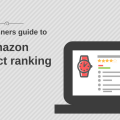 Shoppers don’t always know what they really want or need until they actually see it. Modern e-commerce sites make it easy to quickly browse or search through many products, but there are also other options.
Shoppers don’t always know what they really want or need until they actually see it. Modern e-commerce sites make it easy to quickly browse or search through many products, but there are also other options.
Online shops that do a good job of actively recommending products can see their sales skyrocket. Whether by turning browsers into buyers or increasing the size of the average order, useful, personally appropriate product recommendations will almost always drive business levels higher.
Fortunately, proposing products in ways that make shoppers eager to buy is easier than many realize. What follows are seven effective tactics that can be applied by just about any store online.
1) Choose and Use the Most Appropriate Types of Recommendation
Every worthwhile sort of product recommendation will have some rationale behind it. There are quite a few available sources of information and approaches e-commerce sites can use to develop product recommendations appropriate to particular people.
Naturally enough, shoppers will always be more likely to consider and purchase proposed products that actually suit them well. Being familiar with the most common basic types of product recommendations and choosing among them strategically will enable better results in any situation. These are those based on:
- Browsing history. Even a first-time visitor to an online shop leaves behind plenty of telling information. Product suggestions that account for the items a shopper has already looked at are some of the simplest to generate and among the most effective. Simply listing some similar items that sell or review well will almost always be helpful.
Purchasing patterns. Any existing customer will have gone beyond virtual window-shopping to express clear, definite preferences. Product recommendations that accurately reflect a shopper’s past purchases will rarely be anything but appropriate. That can mean anything from highlighting a product that will work well with a purchase to informing a buyer about a newer, better model.
- Demographic details. Social media sites and certain ad networks make it possible to target shoppers according to dozens of personal factors. Oftentimes, certain types of products will be best suited to people of particular backgrounds. Demographic targeting makes it possible to recommend products even in the absence of browsing or purchasing history.
- Overall popularity. It is not always necessary or worthwhile to personalize product recommendations aggressively. Suggesting a highly rated best-seller to a shopper who is looking at a less desirable product can be welcome and effective. Shoppers often feel more confident about checking out with products that others have deemed desirable and worthy of purchasing.
2) Write Better Titles and Descriptions
The mere act of recommending a product does not necessarily make it seem worth investigating further. Think of product recommendations as calls to action that need to be tuned and refined for maximum effectiveness while still feeling natural.
Strong, tight titles and informative descriptions encourage shoppers to take product suggestions more seriously. At the same time, overly “salesy” copy can cast doubt on the sincerity of a product recommendation.
3) Never Neglect Design

A bit more contrast or a carefully placed highlight can make a product recommendation more noticeable and attractive. Product suggestions, though, should still integrate organically with their surroundings so as not to seem too pushy.
4) Set Specific Goals
Product recommendations are meant, in general, to encourage shoppers to buy more items. Beneath that large umbrella, though, are many more particular options e-commerce sites can pursue.
Some shops online, for example, end up with stocks of high-quality products that do not sell as well as they should. Prioritizing such goods in product recommendations can give them the initial momentum they deserve, with the reviews that result driving them higher on the sales charts. Having goals more specific than merely boosting revenues will simplify many recommendation-related decisions.
5) Position for Success
Product recommendations can be delivered in any of many available outlets and in different positions within them. A product suggestion made in an order confirmation email could meet with an entirely different reception than when published on a “404 Not Found” web page.
Experimentation will reveal how different types of product recommendations perform in various contexts. Oftentimes, the choice of a particular medium or placement will help settle a number of other questions.
6) Test and Test Again
There is oftentimes no substitute for hard data, and product recommendations are an especially clear case in point. Product recommendations are even more amenable to split testing than are pay-per-click ads or landing pages.

7) Learn to Think Like a Shopper
A large part of the power of product recommendations stems from the fact that shoppers actually find well-grounded suggestions desirable and helpful. That cannot always be said about other marketing tools, to put it mildly.
It’s possible to take this realization a step further to make product recommendations even more valuable. Stepping back and thinking about whether a given decision is going to make a product suggestion more useful to the targeted shopper will often reveal a clear, obvious answer.
While there is always some salesmanship involved, effective product recommendations do not need to be manipulative or underhanded. Shoppers appreciate those that actually help them make informed purchasing decisions, and that is a fact which sellers do well to respect.
Great Product Recommendations are Simply Good Business
Online shops that make better product recommendations than their competitors will almost always benefit with regard to increased sales. At the same time, e-commerce sites that excel at suggesting products also tend to foster appreciation, loyalty, and other positive feelings in shoppers.
That complete package is one which is easy to recommend to any online retailer today. Putting some effort into generating and displaying more useful, engaging product recommendations will virtually always be worthwhile.

 Purchasing patterns. Any existing customer will have gone beyond virtual window-shopping to express clear, definite preferences. Product recommendations that accurately reflect a shopper’s past purchases will rarely be anything but appropriate. That can mean anything from highlighting a product that will work well with a purchase to informing a buyer about a newer, better model.
Purchasing patterns. Any existing customer will have gone beyond virtual window-shopping to express clear, definite preferences. Product recommendations that accurately reflect a shopper’s past purchases will rarely be anything but appropriate. That can mean anything from highlighting a product that will work well with a purchase to informing a buyer about a newer, better model.









